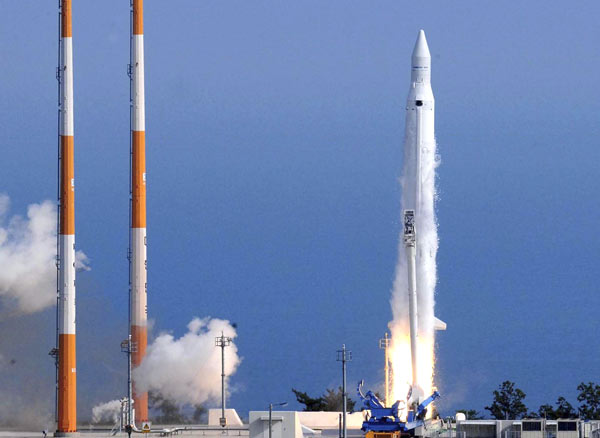Asia-Pacific
S Korean rocket likely exploded soon after liftoff
(Agencies)
Updated: 2010-06-10 19:29
 |
Large Medium Small |
SEOUL, South Korea - A South Korean rocket carrying a climate observation satellite apparently exploded 137 seconds into its flight early Thursday, the country's second major space setback in less than a year.
The two-stage Naro rocket operated normally during and after liftoff from the country's space center, Minister of Education, Science and Technology Ahn Byong-man said. But then communications with the rocket were lost.
|
||||
He said South Korean and Russian experts were trying to find the cause of the problem.
The blastoff at the coastal space center in Goheung, 290 miles (465 kilometers) south of Seoul, was the country's second launch of a rocket from its own territory. In the first attempt last August, the satellite failed to reach orbit because one of its two covers apparently failed to come off after liftoff despite the rocket launch itself being considered a success.
Since 1992, South Korea has launched 11 satellites from overseas sites, all on foreign-made rockets.
The first stage of the two-stage Naro rocket was designed and built by Russia and the second by South Korea.
South Korea's Ministry of Education, Science and Technology, which oversees the space program, says South Korea plans to develop a space launch vehicle with its own technology by 2020.


